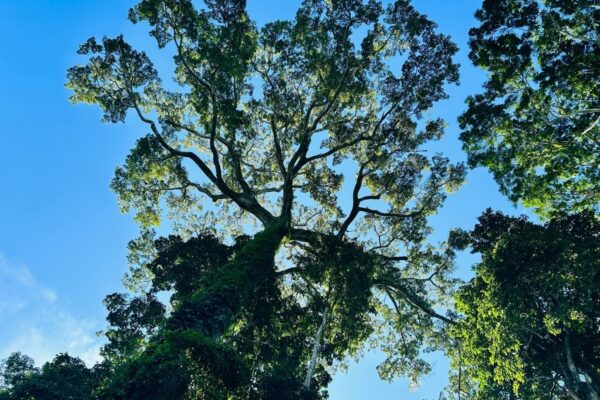By Daphné Menthonnex , Member Manager, Earthworm Foundation
I remember the first time I drove along the BR-163, the road that crosses Mato Grosso, the "breadbasket of Brazil". Kilometers of trucks loaded with soybeans passed by, heading north.
All around, the vastness: fields stretching as far as the eye can see, but also trees at the edges, silent and fragile. It was there that I understood the stakes involved in soybean cultivation. These are landscapes in transformation, human stories, choices that will shape our shared future.
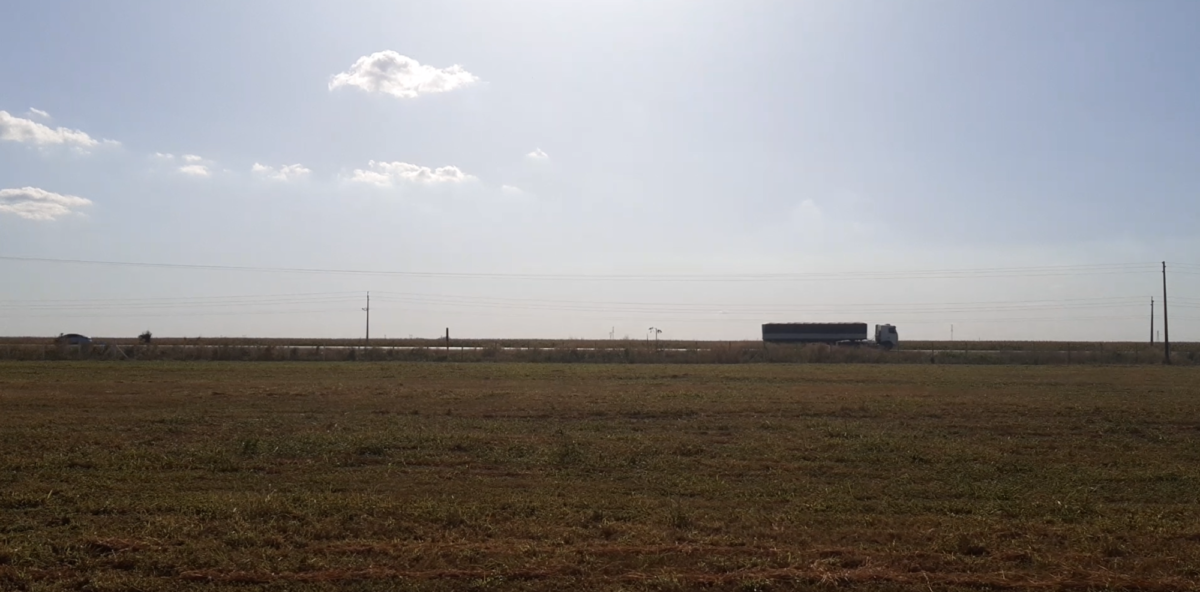
Today we have a reason to celebrate. 30% of the Brazilian soy imported into France between July 2024 and June 2025 has been analysed according to our Zero Deforestation or Conversion (ZDC) methodology.
In practical terms, this means that this soy was not produced at the expense of forests or other valuable natural ecosystems. It's a step towards a more responsible supply chain.
Soy is at the heart of our food system: 77% of global production is used to feed animals. The rising demand for animal products is driving the expansion of soy cultivation, at the expense of natural land, particularly in Brazil.
France adopts its National Strategy to Combat Imported Deforestation (SNDI). This strategy brings together institutions, businesses, researchers, NGOs, and agricultural unions.
It is within this context that the Soy Manifesto was born , a historic commitment by French distributors to cease sourcing soy that contributes to deforestation or the conversion of natural ecosystems. This commitment is supported by the General Commission for Sustainable Development (CGDD), NGOs (Canopée, Mighty Earth, and Earthworm Foundation), and will soon be joined by industry representatives.
Earthworm Foundation is chosen to coordinate its implementation.
I joined the European soy team. My role: to test concrete solutions to transform a global industry.
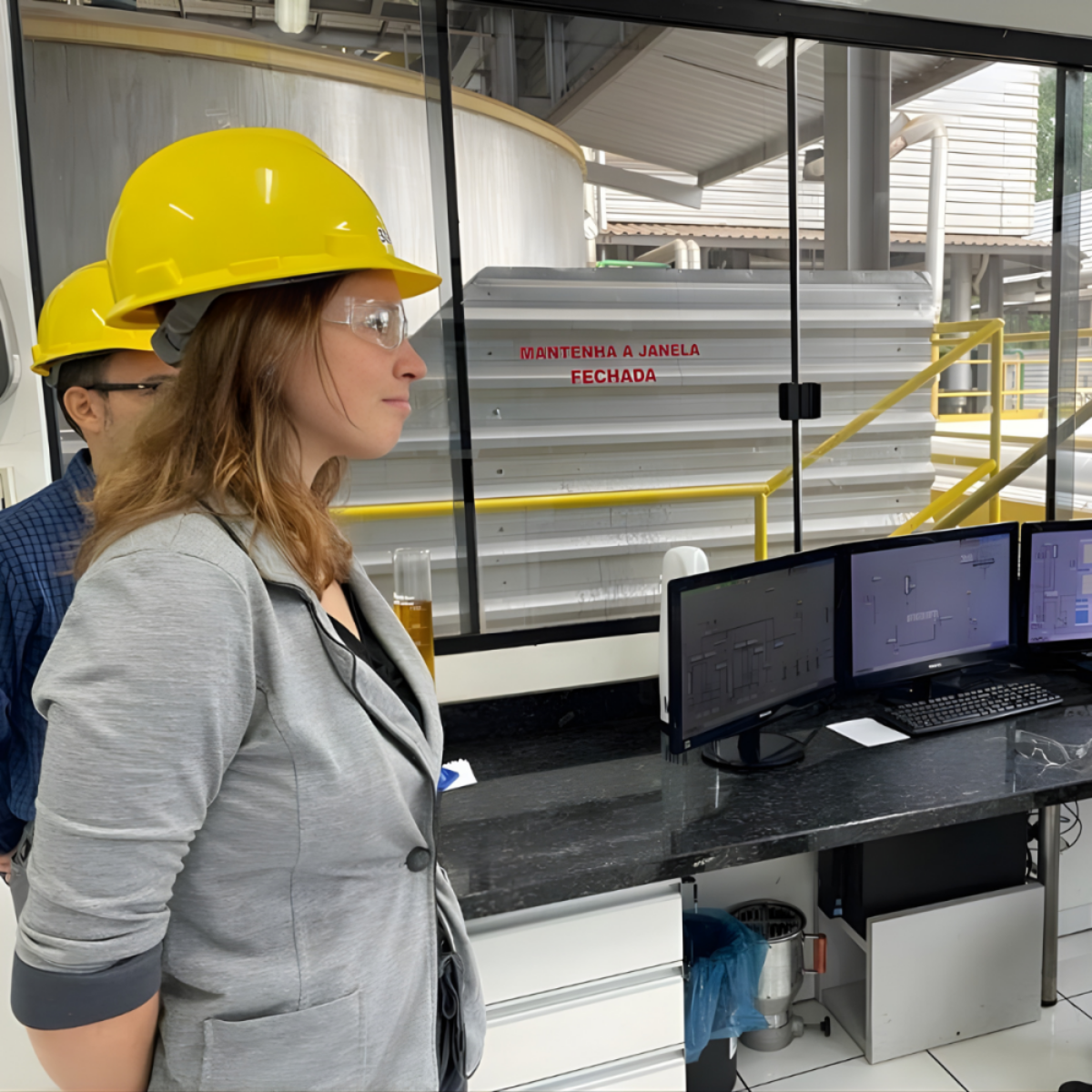
This is an immense challenge.
Once harvested, soybeans travel, mix, change form, pass through hands, and cross into different countries. Each step complicates traceability. Furthermore, the data is confidential. The four major global traders—the acronym ABCD ( Archer Daniels Midland Bunge , Cargill , and Louis Dreyfus Company )—are responsible for nearly 90% of global trade and wield considerable influence over access to information. We needed to invent a method that was ambitious, reliable, and applicable on an industrial scale.
Inspired by years of work on palm oil by Earthworm Foundation and by the scientific committee of the SNDI, we developed the ZDC (Zero Deforestation or Conversion) methodology with the support of Lidl France .
The first pilot project wasn't approved due to insufficient information. I remember the disappointment, but also the support of our partners. That trust carried us.
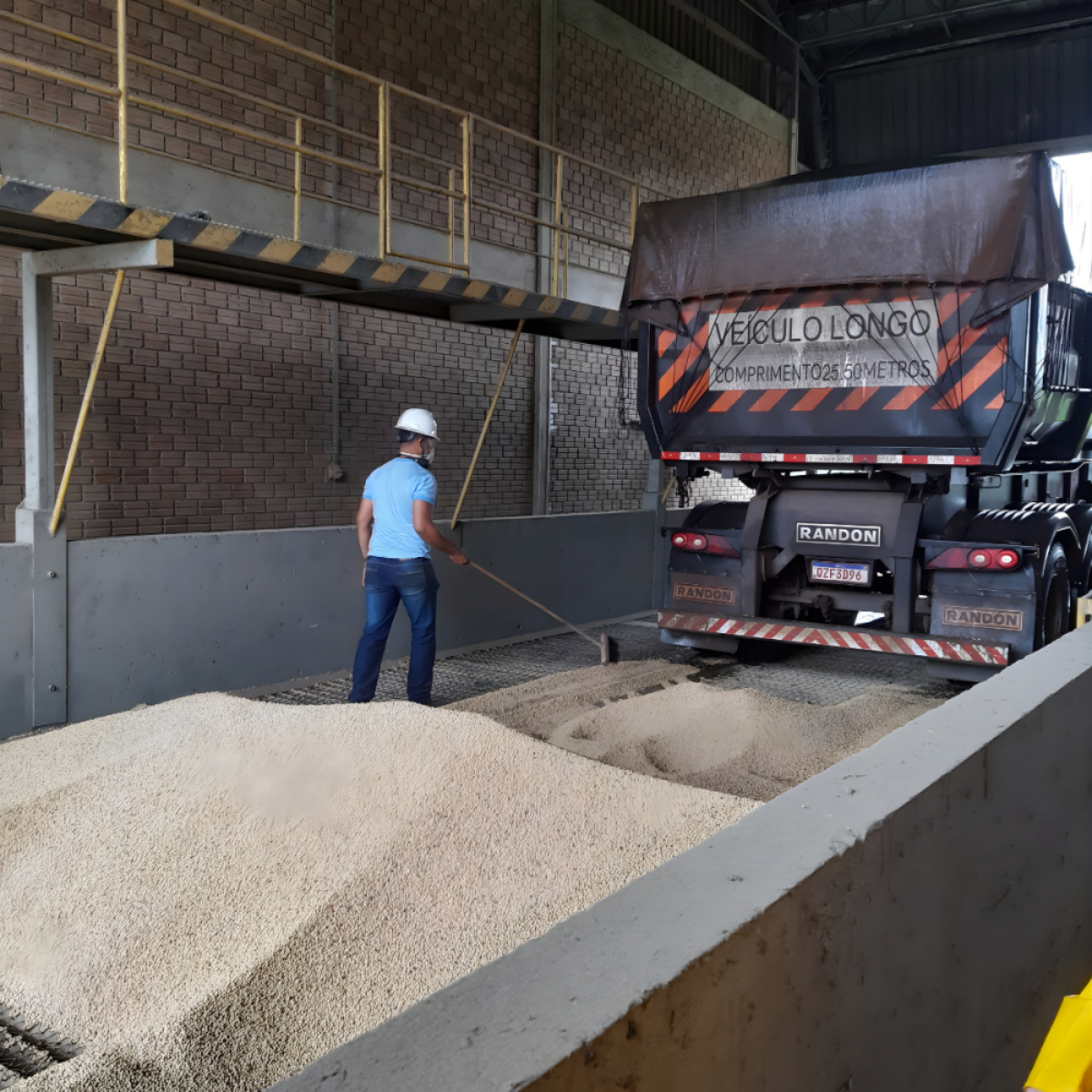
We are launching a second pilot, on the cargo ship Ultra Lynx , loaded in Itacoatiara and destined for Nantes, France.
To ensure its success, we went directly to Brazil. There, I met soybean farmers, processors, families, and landless workers. Their stories, their concerns, and their hopes gave a human face to the industry. This trip gave me the impetus for what came next.
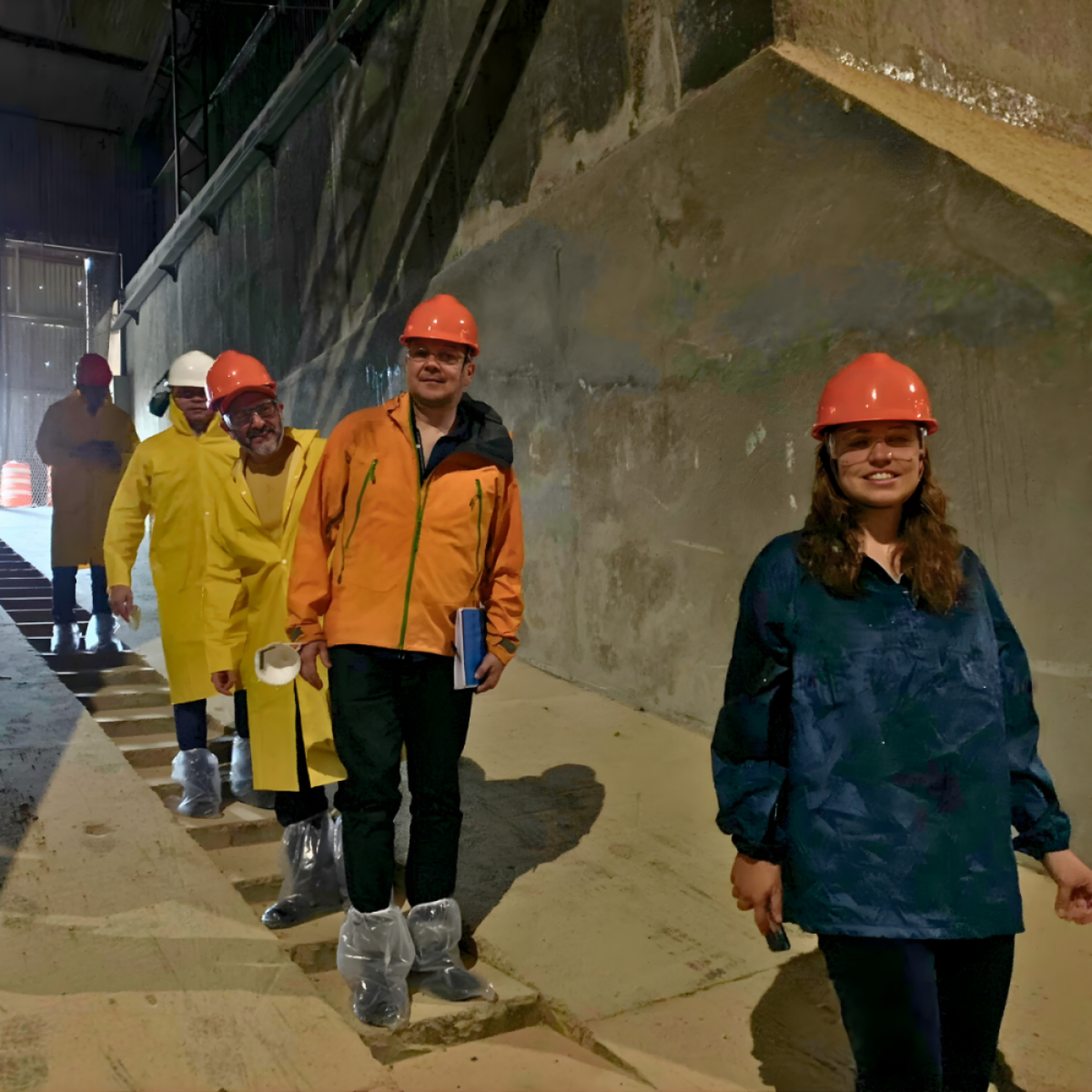
The return to France marked a turning point: the Ultra Lynx became the first ZDC-approved cargo ship. Then a second. Then a third.
Since then, we have:
- Accompanied Solteam in the analysis of 15 cargo ships ;
- Developed a partnership with Louis Dreyfus Company , enabling the import of 21 ZDC cargo ships ;
- Conducted an innovative pilot with COFCO International supported by E.Leclerc , the Mousquetaires Group and Coopérative U , which brought together the operators of a Brazilian port around a common issue: making the soybeans transiting through it more responsible.
In total, more than 40 cargo ships were analysed, of which more than 30 were validated by the ZDC (Zero Deforestation and Forest Consumption ). This represents more than 2 million tons of soy imported into France, without deforestation or conversion, since 2021. A volume exceeding the country's annual imports.
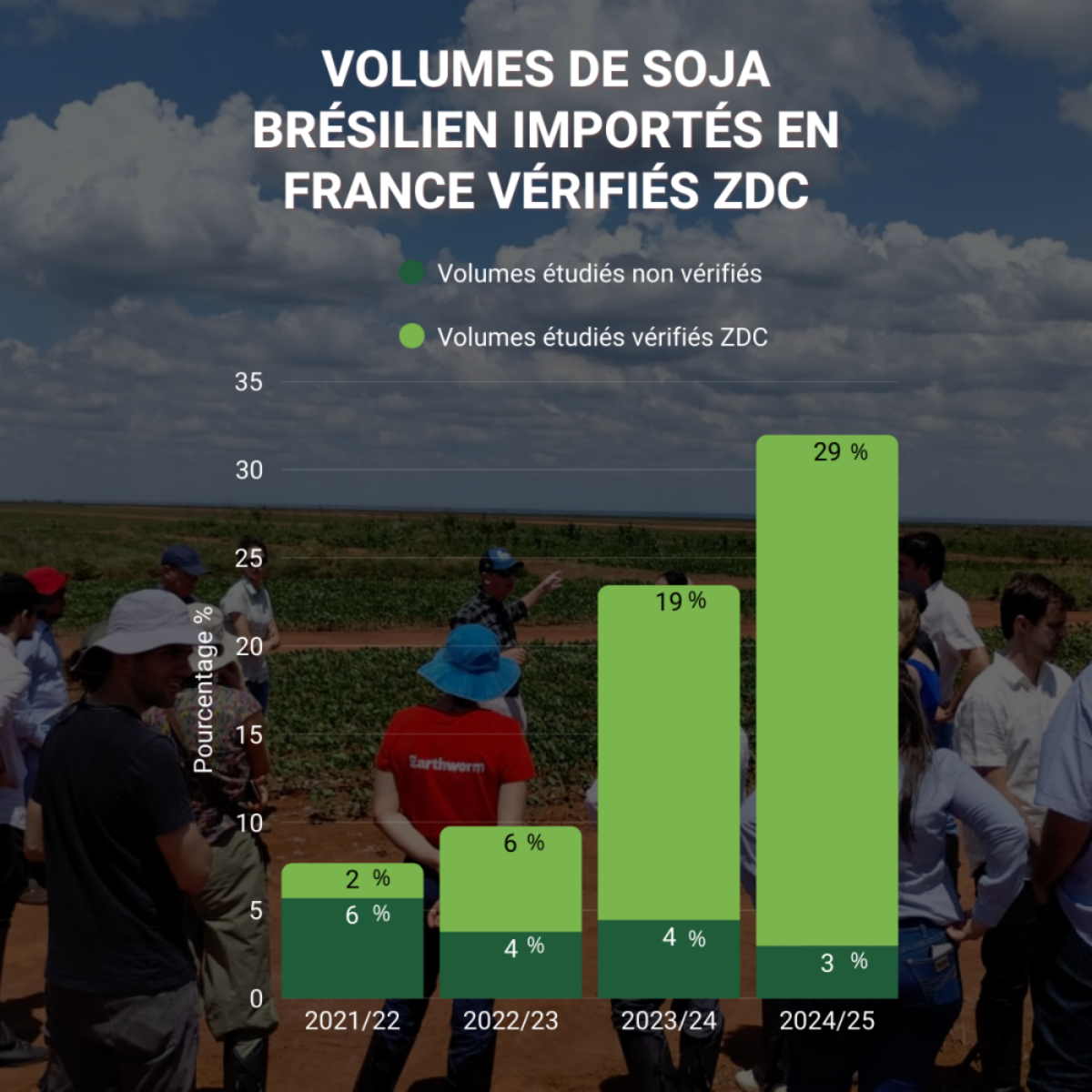
Cargo after cargo, we see concrete changes:
- more volumes drawn,
- more precise data,
- more committed suppliers,
- reflections on the handling of non-compliance cases.
These advances have helped prepare companies for the requirements of the new European regulations on deforestation.
Today, what we are celebrating is not just a number. It is proof that transformation is possible. Not all at once. Not in the abstract. But in reality, in relationships, in trust, in perseverance.
I am deeply proud of this collective success. Thank you to our French and Brazilian partners. Thank you also to my colleagues, who work with courage and conviction.
Learn more here: Zero Deforestation and No Conversion (ZDC) Methodology
